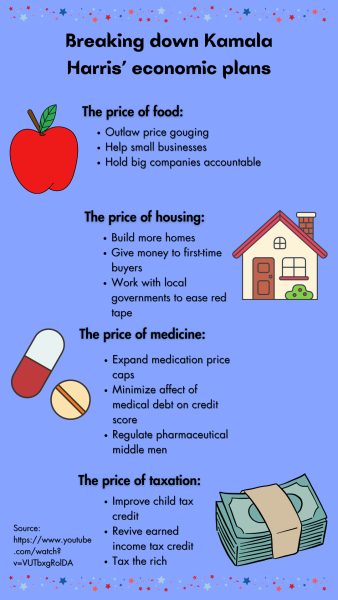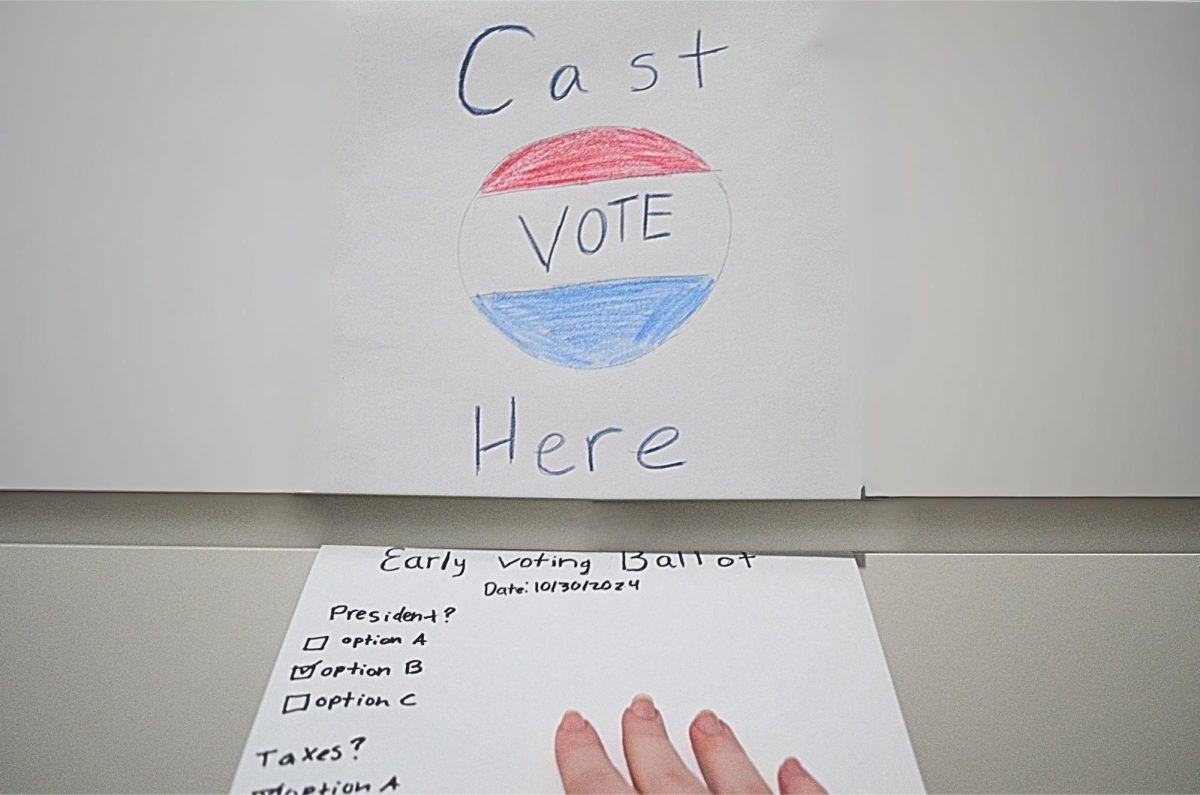July 21, President Biden dropped out of the presidential race, losing his advantage as an incumbent. In his place, the current president endorsed Vice President Kamala Harris. Since that fateful day, Harris has swept the internet by storm, garnering attention for quotable, comical moments and important political action. As the Democratic National Convention (DNC) in Chicago ramps up, Harris intends to grow her coconut tree of public visibility, announcing her goals and plans as the leading Democratic presidential candidate.
Recently, Harris announced an economic plan intended to help middle-class families and lower the cost of living, drawing controversy from right-leaning voters. In the plan, she expresses a need to regulate corporate price-gouging, expand affordable housing and expand child tax credit. Each of these actions calls back to President Franklin D. Roosevelt’s innovations in government economic involvement during the Great Depression.

“Costs are still too high, and on a deeper level, for too many people, no matter how much they work, it feels so hard just to be able to get ahead. As President, I will be laser-focused on creating opportunities for the middle class that advance their economic security, stability, and dignity,” Harris said.
Although the mechanics of her plans remain unannounced, Harris stated she hopes to ban food price gouging, a first-of-its-kind legislative action, ultimately part of her goal to combat inflation. She intends to punish companies who take greed beyond reasonability and assist rule-following non-chain businesses to move forward, improving competition. Supposing the plan passes through Congress, new bureaucratic committees would likely form to regulate and punish companies found breaking the potential bill’s regulatory rules.
Additionally, she hopes to continue her work in regulating the prices of prescription drugs. As Vice President, she worked with President Biden and Congress to bring down the cost of insulin and the total price of medication for seniors. In her address, Harris communicated an intent to continue this work with other pharmaceutical costs. She additionally referenced her desire to end medical debt’s impact on Americans’ credit scores and her hopes to eventually cancel part of the debt.
In the oration, she additionally spoke on housing costs. Tackling the concerns young people face regarding home prices, shortages and security, Harris explained her goal to minimize barriers to housing by working with businesses and local governments. The candidate promised “three million new homes and rentals” and proposed giving $25,000 to first-time home-buyers. She simultaneously condemned the actions of wealthy landlords who falsely created high housing prices through sweeping purchases.
Finally, she promised tax cuts to middle and working-class Americans, a proposal frequently employed by Republican politicians. She hopes to restore and improve the earned income tax credit and child income tax credit. She intends to achieve this while minimizing the United States’ debt by focusing on increasing the amount of taxes taken from wealthy individuals and companies.
While the majority of Democrats hail Harris’ plan as an innovative approach to help Americans, right-leaning Americans fear its impacts. They worry that such limitations on prices would compare to communism, an ideology firmly despised by Republicans since the era of McCarthyism. They also fear an economic situation similar to Biden’s administration, where inflation continues to hit families in spite of ‘gimmicky’ presidential action. Regardless, millions of voters feel enthusiastic about Harris and her plans to assist the middle class.
“Personally, I see them as a good way to aid families in the lower middle/working class who have been struggling to make ends meet. It will be beneficial to all, seeing as her plans entail trying to lower food costs and taxes on certain services. I mean, to a certain extent, yes. However, most of her plans have to get congressional approval, which might deter some voters, as it’s not a solidified promise. It’s a good idea, though, that’s for sure,” junior Eli Pothier said.
















